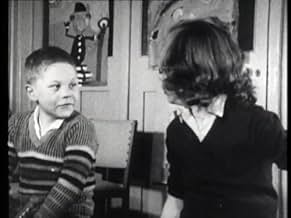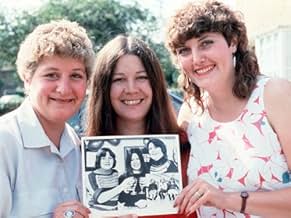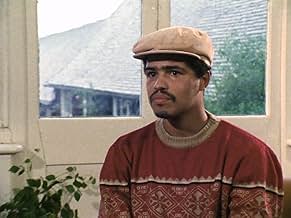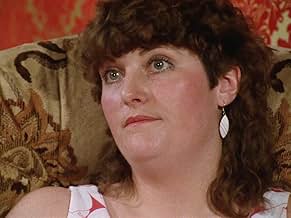28 Up
- टीवी फ़िल्म
- 1984
- 2 घं 16 मि
IMDb रेटिंग
8.1/10
3.2 हज़ार
आपकी रेटिंग
अपनी भाषा में प्लॉट जोड़ेंThis eye-opening episode uncovers human nature and the desire to survive and succeed in all its heart-breaking glory.This eye-opening episode uncovers human nature and the desire to survive and succeed in all its heart-breaking glory.This eye-opening episode uncovers human nature and the desire to survive and succeed in all its heart-breaking glory.
- 1 BAFTA अवार्ड जीते गए
- 3 जीत और कुल 3 नामांकन
Bruce Balden
- Self
- (as Bruce)
Jacqueline Bassett
- Self
- (as Jackie)
Symon Basterfield
- Self
- (as Simon)
Andrew Brackfield
- Self
- (as Andrew)
John Brisby
- Self
- (आर्काइव फ़ूटेज)
- (as John)
Peter Davies
- Self
- (as Peter)
Suzanne Dewey
- Self
- (as Suzi)
Charles Furneaux
- Self
- (आर्काइव फ़ूटेज)
- (as Charles)
Nicholas Hitchon
- Self
- (as Nick)
Neil Hughes
- Self
- (as Neil)
Lynn Johnson
- Self
- (as Lynn)
Paul Kligerman
- Self
- (as Paul)
Susan Sullivan
- Self
- (as Sue)
Tony Walker
- Self
- (as Tony)
Michael Apted
- Interviewer
- (वॉइस)
- (बिना क्रेडिट के)
Michelle Murphy
- Self (age 7, with Tony)
- (आर्काइव फ़ूटेज)
- (बिना क्रेडिट के)
फ़ीचर्ड समीक्षाएं
The highlights here are Nicholas and his relocation to Wisconsin and Neil continuing down the spiral of depression. Other than that, most of the subjects have just settled into comfortable, and somewhat mundane, lives. I was disappointed not to get more of John's douchiness, but he declined to be interviewed, as did one of the other rich (but far less douchey) kids. It's amusing to see the way Apted keeps trying to badger his subjects into expressing some kind of rage against the upper class, yet they're having no part of his agenda. They all (with the exception of Neil) seem quite content with their standing. I've decided to soldier on with the series, mostly because I've already invested so much in it, but I also remain curious about a few of the subjects.
"Give me a child until he is seven, and I will give you the man," goes a Jesuit proverb, which the "Up" documentaries quote. Every seven years, Michael Apted interviews the same Britons to see how they have changed. "28 Up" is the fourth installment of the series--the interviewees are now each 28 years old. The children are now the men, or women. It's not necessary to have seen, or recall, the previous installments of the television series to watch this episode, because the filmmakers intercalate clips from previous episodes with the new scenes. Via film editors Kim Horton and Oral Norrie Ottey, "28 Up" stands well by itself. We're timely shown how the interviewees have changed.
The proverb seems oft to hold true, but there are some surprises. Suzi, for example, was "very cynical" about marriage as a 21-year-old chain-smoker, but at 28 years old is a cheerful wife. Tony, however, said he wanted to be a cabby if he didn't succeed as a jockey--now he is a cabby, and he seems happy.
Besides examining their individual lives, the series also examines the differences among socioeconomic classes in Britain. John, although he didn't participate in the show at 28 years old, made two interesting comments on class issues in previous episodes (viewed again here). He said it "doesn't mean because you sweep the streets you're any less valuable than someone who's running a huge corporation. Not everyone can be at the top. As long as people are happy at what they're doing." John is from the upper classes and attended a private school. He went onto say, "And this is what worries me about these new sort of invidious sort of class attitudes that certain subversive elements are introducing...."
Class issues don't seem to bother most of the cast; most of them seem content with their role in society, as John advocated as the "greatest good that could be." Yet, John is also a bit of a snob. Contrastingly, Bruce is a socialist from the upper classes, and he is now teaching math in a public school.
Women's role in family and society is another issue examined in the film. Jackie, Nick's wife, discussed how she and her husband might balance work with children. Jackie (a different one), Lynn and Sue are the program's three working-class women. They're all married now, and they characterized marriage as a partnership of equals. Jackie has decided not to have children, at least not yet.
Inevitably, some of the interviewees are more interesting than others are. For example, Symon (who had the misfortune of being the last interviewed) was a bit boring. At 21 years old, he was working in a freezer room; he said, "I couldn't stay there for that long--my mind would go dead." He's still working there at 28 years old. It wasn't apparent to me that his mind had died, but perhaps the job has caused him to appear dull in this segment.
Finally, Neil, lanky, serious-minded and depressed, is to me (and many other viewers) the most interesting person of the gang. Neil is now a tramp traveling around Britain. The most memorable sequence of the film is of Neil nodding nervously as he sits by a waterfront, discussing his life and past, hesitating often as he thinks about how to better articulate his thoughts, or to reflect on his thoughts before he is posed another question.
The proverb seems oft to hold true, but there are some surprises. Suzi, for example, was "very cynical" about marriage as a 21-year-old chain-smoker, but at 28 years old is a cheerful wife. Tony, however, said he wanted to be a cabby if he didn't succeed as a jockey--now he is a cabby, and he seems happy.
Besides examining their individual lives, the series also examines the differences among socioeconomic classes in Britain. John, although he didn't participate in the show at 28 years old, made two interesting comments on class issues in previous episodes (viewed again here). He said it "doesn't mean because you sweep the streets you're any less valuable than someone who's running a huge corporation. Not everyone can be at the top. As long as people are happy at what they're doing." John is from the upper classes and attended a private school. He went onto say, "And this is what worries me about these new sort of invidious sort of class attitudes that certain subversive elements are introducing...."
Class issues don't seem to bother most of the cast; most of them seem content with their role in society, as John advocated as the "greatest good that could be." Yet, John is also a bit of a snob. Contrastingly, Bruce is a socialist from the upper classes, and he is now teaching math in a public school.
Women's role in family and society is another issue examined in the film. Jackie, Nick's wife, discussed how she and her husband might balance work with children. Jackie (a different one), Lynn and Sue are the program's three working-class women. They're all married now, and they characterized marriage as a partnership of equals. Jackie has decided not to have children, at least not yet.
Inevitably, some of the interviewees are more interesting than others are. For example, Symon (who had the misfortune of being the last interviewed) was a bit boring. At 21 years old, he was working in a freezer room; he said, "I couldn't stay there for that long--my mind would go dead." He's still working there at 28 years old. It wasn't apparent to me that his mind had died, but perhaps the job has caused him to appear dull in this segment.
Finally, Neil, lanky, serious-minded and depressed, is to me (and many other viewers) the most interesting person of the gang. Neil is now a tramp traveling around Britain. The most memorable sequence of the film is of Neil nodding nervously as he sits by a waterfront, discussing his life and past, hesitating often as he thinks about how to better articulate his thoughts, or to reflect on his thoughts before he is posed another question.
"Give me the child until he is seven, and I will give you the man." So goes the old proverb, and the proof is in this fascinating documentary, the fourth chapter in an ambitious, ongoing epic of non-fiction filmmaking already two decades in the making at the time.
The project began in the middle 1960s as a modest examination of English class divisions in a group of seven-year old children from different social backgrounds, and has been updated every seven years to show their progress through adolescence to young adulthood. Each individual biography resists the pre-determined notions of (specifically English) status and privilege around which the entire cycle of films is based, becoming instead a record of the same, sometimes rocky path to maturity followed by everyone, regardless of upbringing. At age seven every child is carefree and impressionable; at fourteen most are sullen and inhibited, uncomfortable in puberty; at twenty-one they are, by degrees, poised to reach their potential: eager and naive or cynical and confused.
And by age 28 their niche in society has been secured, for better or (sadly) for worse. The candid self-analysis, and the range of insight and opinion, makes the film (individually, and as a series) an invaluable document of human growth and development, as well as an irresistible reminder of our own personal destiny.
The project began in the middle 1960s as a modest examination of English class divisions in a group of seven-year old children from different social backgrounds, and has been updated every seven years to show their progress through adolescence to young adulthood. Each individual biography resists the pre-determined notions of (specifically English) status and privilege around which the entire cycle of films is based, becoming instead a record of the same, sometimes rocky path to maturity followed by everyone, regardless of upbringing. At age seven every child is carefree and impressionable; at fourteen most are sullen and inhibited, uncomfortable in puberty; at twenty-one they are, by degrees, poised to reach their potential: eager and naive or cynical and confused.
And by age 28 their niche in society has been secured, for better or (sadly) for worse. The candid self-analysis, and the range of insight and opinion, makes the film (individually, and as a series) an invaluable document of human growth and development, as well as an irresistible reminder of our own personal destiny.
The 'Up Series' represents one of the most fascinating and unusual uses of film in cinema history - a documentary life-long chronicle of the lives of 14 people starting at 7 years old, revisiting them every seven years through age 49 (so far).
While I could quibble, wishing for a bit more depth here and there (especially with the women, where there's a bit too much emphasis on love and marriage at the expense of all else), it's really an astounding, moving, frightening and uplifting document. There's no way to watch this remarkable series of films without reflecting deeply on one's own life, and how you have changed (and stayed the same) over your own lifetime.
While Michael Aped deserves every bit of credit he's received for this amazing piece of cultural anthropology, it's important to note this first film, 7 Up,was actually directed by Paul Almond, and Apted was a that point a researcher for the project.
While I could quibble, wishing for a bit more depth here and there (especially with the women, where there's a bit too much emphasis on love and marriage at the expense of all else), it's really an astounding, moving, frightening and uplifting document. There's no way to watch this remarkable series of films without reflecting deeply on one's own life, and how you have changed (and stayed the same) over your own lifetime.
While Michael Aped deserves every bit of credit he's received for this amazing piece of cultural anthropology, it's important to note this first film, 7 Up,was actually directed by Paul Almond, and Apted was a that point a researcher for the project.
Filmmaker Michael Apted's pet project for British television (released theatrically in several countries) is an occasionally fascinating, sometimes boring documentary which spans many years as Apted interviews a handful of British schoolchildren in the 1950s, catching up with them seven years later and so on until the kids have reached the age of 25. For the sake of cinema, it is a shame that the subjects whom Apted initially chose for his portrait turned out to be such colorless personalities. There are a few tragedies which unfold with the heartrending beauty of fictional melodrama, yet this installment runs out of intriguing moments long before it is over. Apted is to be commended, nevertheless, for a brilliant cinematic idea. Followed in due time by "35 Up", "42 Up", "49 Up". **1/2 from ****
क्या आपको पता है
- ट्रिवियाPeter Davies lost his job as a teacher because of the anti-Thatcher comments he made in this film.
- भाव
Neil Hughes: If the state didn't give us any money, it would probably just mean crime and I'm glad I don't have to steal to keep myself alive. If the money runs out then for a few days there's nowhere to go and that's all you can do, I simply have to find the warmest shed I can find.
टॉप पसंद
रेटिंग देने के लिए साइन-इन करें और वैयक्तिकृत सुझावों के लिए वॉचलिस्ट करें
विवरण
- चलने की अवधि2 घंटे 16 मिनट
- रंग
- ध्वनि मिश्रण
- पक्ष अनुपात
- 1.33 : 1
इस पेज में योगदान दें
किसी बदलाव का सुझाव दें या अनुपलब्ध कॉन्टेंट जोड़ें



































